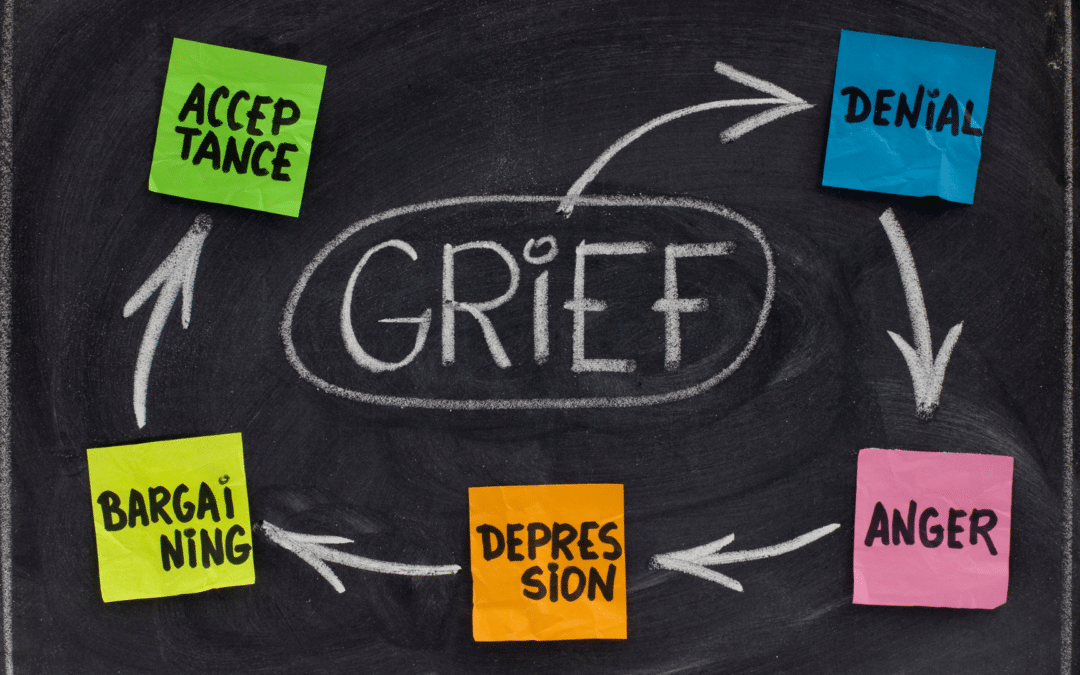
Understanding Grief and Bereavement
“Grief is like the ocean; it comes in waves, ebbing and flowing. Sometimes the water is calm, and sometimes it is overwhelming. All we can do is learn to swim.” – Vicki Harrison, Author.
Losing someone we love is possibly one of the toughest, most dreadful things we will ever experience in our lifetime. The feelings of sadness, confusion and anger can be immeasurable, dominating our days and causing us to withdraw from the real world. For those blindsided by sudden losses, it can be especially traumatising to realise that we never really know when life may throw us a devastating curveball and crush our dreams, forcing a new reality upon us. Whether through bereavement or other types of losses (eg. divorce, relationships, financial and health losses etc) grief can pose a major threat to our mental state. As painful thoughts and emotions spiral, some may begin to question the comprehensibility of life or doubt their own competence when they find their core beliefs of a secure and benevolent world challenged. Without adequate psychological buffer and defence, the world feels shattered and we may be overwhelmed by loss.
Psychiatrist Elisabeth Kübler-Ross’s grief model noted there are five stages commonly experienced in grieving.
- Denial: Avoidance, confusion, shock, fear and disbelief.
- Anger: Frustration and irritation.
- Bargaining: Struggling to find meaning in life, or constantly telling yourself, “If only i had…”
- Depression: Feeling helpless, lonely and wanting to withdraw from life. This stage is also the most commonly associated with grief.
- Acceptance: Exploring options, putting new plans in place and trying to move on.
It is important to note that these stages are not necessarily linear nor do they illustrate a complete picture of grief. Many who are grieving feel emotionally or physically numb as they subconsciously block painful memories to protect themselves. Some may experience a roller coaster of emotions and are drained of energy as they process the loss. Everyone’s experience with grief is different and very personal – it all boils down to how we cope with crisis and the resulting emotions. Don’t worry if you find your grief experience taking longer than others to complete. Grief is a normal and natural response to loss. We need to be gentle and compassionate with ourselves during the season of grieving
Practicing self-care is a great place to start. Though painful thoughts may flood your mind and you may find yourself wanting to withdraw, taking care of your body is crucial. This can mean maintaining a healthy diet, going for walks in nature, exercising, and ensuring that you get good sleep. Listen to your body and don’t hold yourself back from enjoying the activities that you usually find pleasure in, just because you are still in the grieving process. If you like to read, take a trip to the nearest library. If you find comfort in being around animals, go visit a cat or dog café. These activities help provide much-needed relief and prevent you from being consumed by grief.
Art can also be a meaningful outlet for repressed emotions. Some people may find themselves ruminating over perceived missteps, or wishing they could have done something to change the outcome. It doesn’t matter if you lack artistic talent; painting, drawing, poetry, or even creative journaling can serve to declutter your mind. The creative expression of emotions can be a therapeutic process for grieving individuals to connect with their inwardly-held emotions. Story-telling through art enables them to express deep seated emotions that would have otherwise been hard to access or articulate.
When ready to be more social, it could be good to catch up with family and friends. Some also find it beneficial to join grief support groups and share their experiences. These groups help them feel less isolated and offer emotional support and encouragement as they witness others along different stages of their grief journey. While social support can help take the weight off your shoulders, it can be tough to confide in others when you’re mourning a loss. Fears of having others gossip behind your back or having others pry into your personal privacy, divulging every minute detail – these are completely valid understandable concerns and professional therapy might just be the safe environment you need to work things out.
In professional therapy, you can rest assured that your privacy is kept strictly confidential while receiving professional guidance to help you through difficult times. Therapy is an incredibly valuable and effective way to help yourself heal from your emotional wounds. If you find yourself stuck in an unhealthy loop of distress over unresolved issues and experience difficulty adjusting to losses, a professional therapist can work with you to make sense of the loss and navigate your way through grief with greater emotional resilience. The therapist can also help you discover constructive and authentic narratives that enable better integration of the loss and meaningful transition to life after the loss.
References:
- www.sciencedaily.com/releases/2018/10/181022153512.htm (Accessed 05/02/2021)
- https://www.psycom.net/depression.central.grief.html (Accessed 05/02/2021)
- Edmondson, D., Chaudoir, S.R., Mills, M.A., Park, C.L., Holub, J., & Bartkowiak,J.M. (2011) From shattered assumptions to weakened worldviews: Trauma symptoms signal anxiety buffer disruption. Journal of Loss and Trauma, 16 (4), 358-385
- Janoff-Bulman R. Shattered assumptions: Towards a new psychology of trauma. New York: Free Press; 1992. [Google Scholar]
- Neimeyer, Robert & Burke, Laurie & Mackay, Michael & Stringer, Jessica. (2010). Grief Therapy and the Reconstruction of Meaning: From Principles to Practice. Journal of Contemporary Psychotherapy. 40. 73-83. 10.1007/s10879-009-9135-3.
